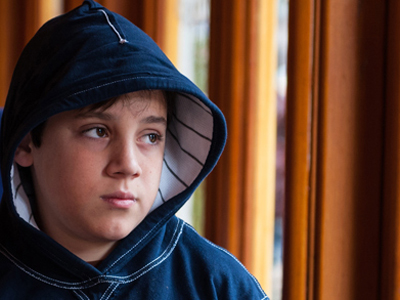How can I Help with my Child’s Self-esteem?
Self-confidence will help your child to be resilient and good self-esteem will stop them focusing on any flaws or comparing themselves unfavourably with others. Through communication, praise and support you can help them to feel good about themselves
 Many individuals grapple with body dissatisfaction, which can significantly impact their self-confidence. Negative body image can be especially detrimental to children. This article provides guidance on recognising, preventing, or alleviating a child's issues related to negative body image and low self-esteem.
Many individuals grapple with body dissatisfaction, which can significantly impact their self-confidence. Negative body image can be especially detrimental to children. This article provides guidance on recognising, preventing, or alleviating a child's issues related to negative body image and low self-esteem.
The Significance of Self-Esteem
Self-esteem and confidence empower children to handle setbacks with resilience. Strong self-esteem allows them to learn, grow, and face new challenges without being consumed by criticism or failure. Children with good self-esteem are less likely to fixate on perceived flaws or make unfavourable comparisons with others.
Children who possess self-acceptance and confidence are better equipped to navigate social situations and overcome worries. A positive self-image serves as a solid foundation for both learning and living.
LEARN ABOUT THE BENEFITS OF LEARNING THROUGH QUIZZES
The Influence of Body Image on Self-Esteem
Unfortunately, self-esteem often intertwines with personal appearance for many people, particularly during puberty. This developmental phase brings about bodily changes coupled with emotional turbulence due to hormonal fluctuations. Anxiety and self-consciousness regarding physical appearance can become magnified, and these concerns are genuine to your child. Media representations often depict 'ideal' bodies, contributing to unrealistic standards. Shockingly, children as young as 5 have expressed concerns about body image.
Prevalence of Low Self-Esteem in Children
Low self-esteem is a widespread issue. The NSPCC conducted 35,244 counselling sessions for children with low self-esteem between 2014 and 2015. In the UK, 1.6 million people have eating disorders, with 11% being males. A disturbing 72% of those with eating disorders have admitted to self-harm, leading to more severe consequences. Bullying can exacerbate these problems, with bullies often targeting appearance to taunt their victims, intensifying a child's dissatisfaction with their body.
The Impact of Social Media on Children's Self-Esteem
In 2013, two-thirds of teenagers had Facebook accounts, and they are now actively engaged on other social media platforms like Twitter, Instagram, WhatsApp, and Snapchat. Unfortunately, these platforms make it easy for individuals, not always friends, to negatively comment on your child's posts or appearance, adversely affecting their self-esteem.
Airbrushed images of 'perfect' celebrities propagate unrealistic expectations of appearance, causing children to unfavourably compare themselves. The rise of the 'selfie' culture further fuels the public's fixation on appearance, with digitally manipulated images contributing to feelings of inferiority. Educate your child about media influences and the illusion created by these images. Encourage them to focus on happiness and health, rather than unrealistic appearances.
Body Image Concerns Affect Both Genders
Body image concerns are not limited to one gender. According to a YMCA study, 49% of teenage girls and 34% of boys have dieted at some point. Boys are often bombarded with images of 'ideal' male bodies but may find it more challenging to discuss their feelings compared to girls. Suffering in silence can lead to eating disorders and self-harm, making it crucial to engage your child in conversations about these issues and watch for any warning signs.
Recognizing Low Self-Esteem in Children
Early detection of warning signs is essential since the pressures on children can quickly become overwhelming. Watch for signs like your child's increased isolation, avoidance of social activities they previously enjoyed, and other concerning behaviours. Additional warning signs may include:
- Comparing their appearance negatively with others.
- Engaging in eating irregularities, such as skipping meals or overeating.
- Playing with their food.
- Wearing baggy clothing to conceal their body.
- Counting calories obsessively.
- Heading to the bathroom immediately after meals, which may indicate bulimia.
FIND OUT WHY KIDS LOVE OUR WEBSITE
Supporting a Child with Body Image Issues
Many children grapple with poor body image and low self-esteem, but only a small fraction will seek help. Approach these concerns with care, as your child may be defensive or in denial. Reassure them of your support and emphasize their positive qualities. Be patient, as it can be challenging for them to open up. Make them aware that additional help is available confidentially through resources like Young Minds. If you are concerned for your child's health or well-being, contact their school or a doctor. The NHS page on Eating Disorders can also provide valuable information.
Supporting a Child with Low Self-Esteem
A significant portion of children experience low self-esteem. If your child falls into this category, you can take several steps to help them. Listen attentively and encourage them to express their feelings and concerns. Let them know they are loved and valued. Focus on praising their efforts rather than dwelling on mistakes. Support their interests and motivate them to try new activities. Encourage them to spend time with friends who are positive and supportive. If the situation becomes severe, seek professional assistance or suggest visiting the Childline website. In extreme cases, consult your GP.
Promoting a Healthy Body Image in Children
Children are greatly influenced by their family environment. Behaviours at home can either reinforce negative body image or encourage a healthy one. Avoid self-criticism and obsessive diet discussions, as words can unintentionally hurt. Address teasing and nicknames that may negatively impact your child's self-esteem.
Puberty and Its Impact on Self-Esteem

Puberty is a tumultuous time marked by hormonal changes and bodily development. Unfortunately, it often leads to negative effects on body image and self-esteem. Reassure your children about the changes they will experience and provide them with positive role models who don't hinge their worth on looks. Engage in conversations about eating disorders while promoting a healthy lifestyle, a balanced diet, and regular exercise.
To support your child's self-esteem, start early and continue guiding them through puberty. Ensure they feel loved and valued for who they are inside, not for their appearance or actions.
Effective communication is crucial, so encourage your child to voice their concerns. They should feel comfortable approaching you if they encounter bullying or experience it. Promote self-love, emphasizing that true worth extends beyond physical appearance. Investing in your child's self-esteem will yield lifelong dividends.



